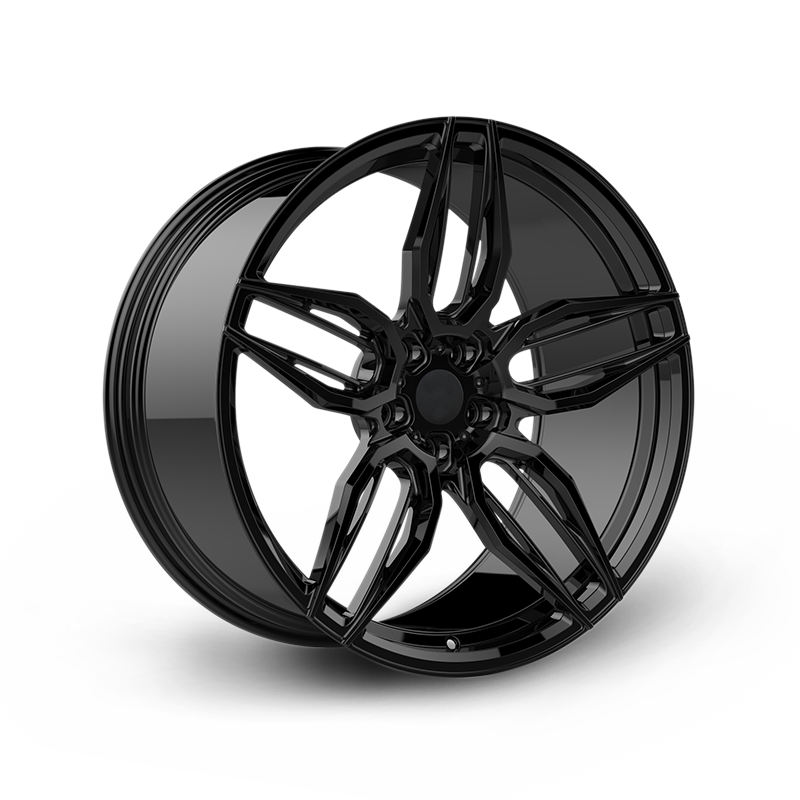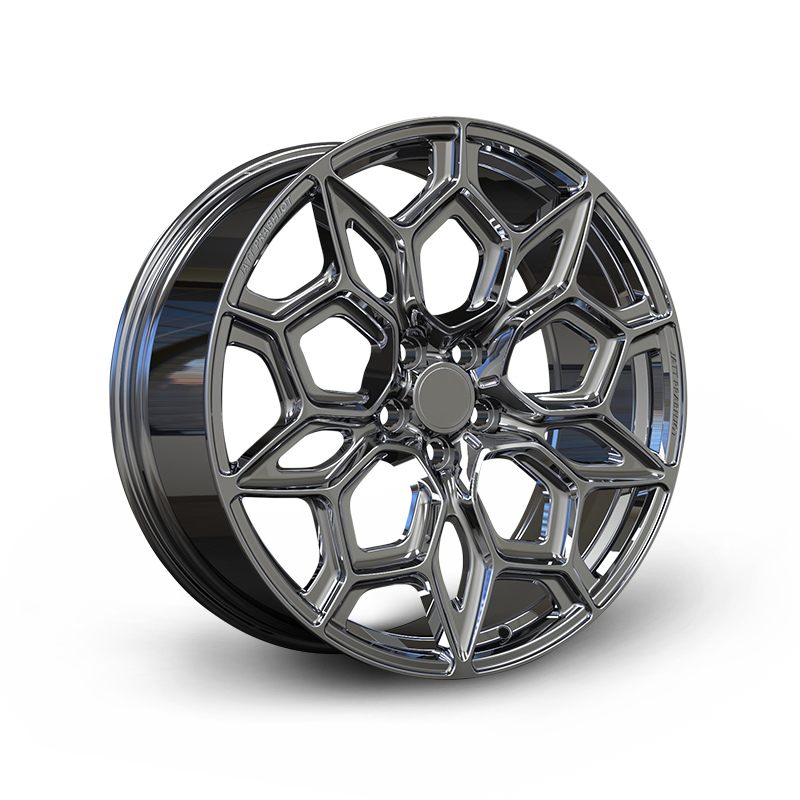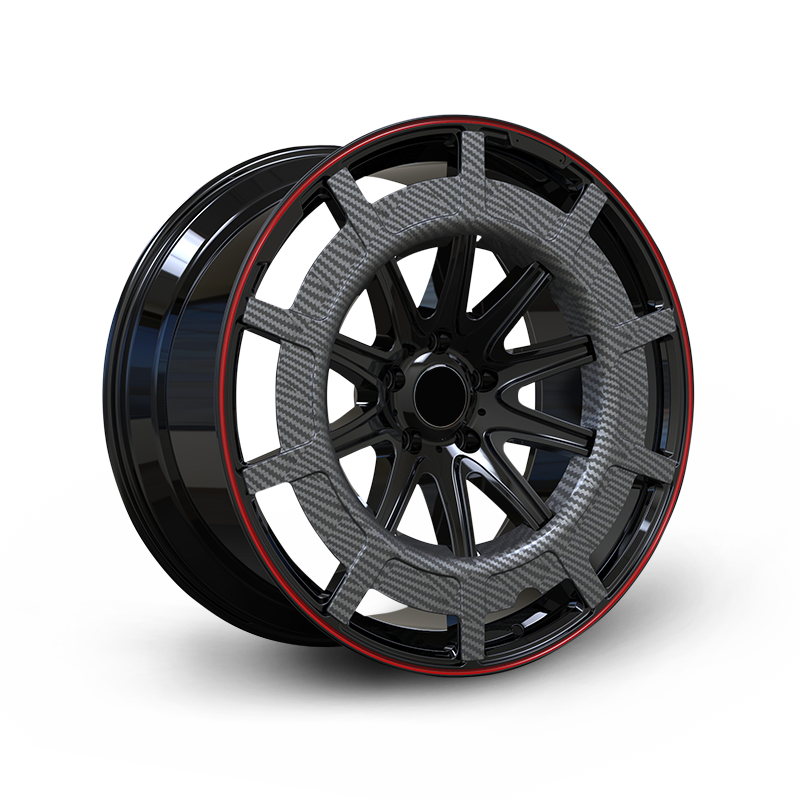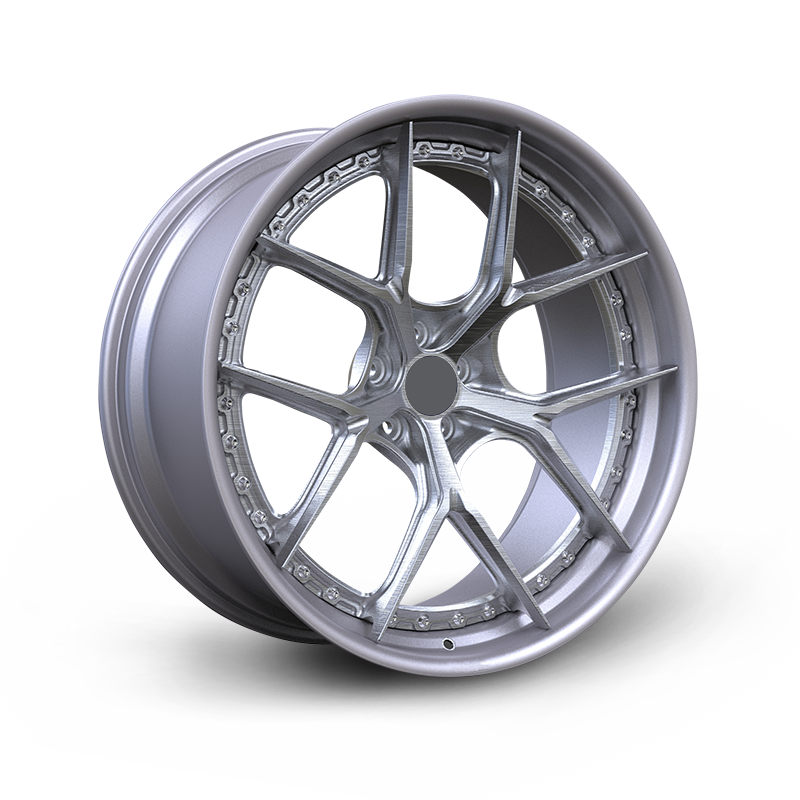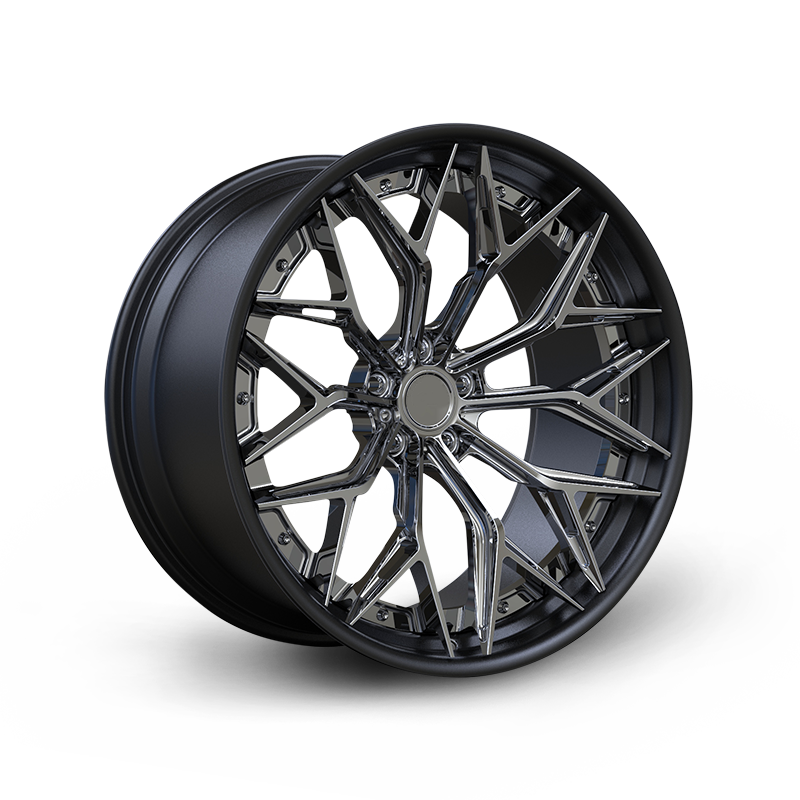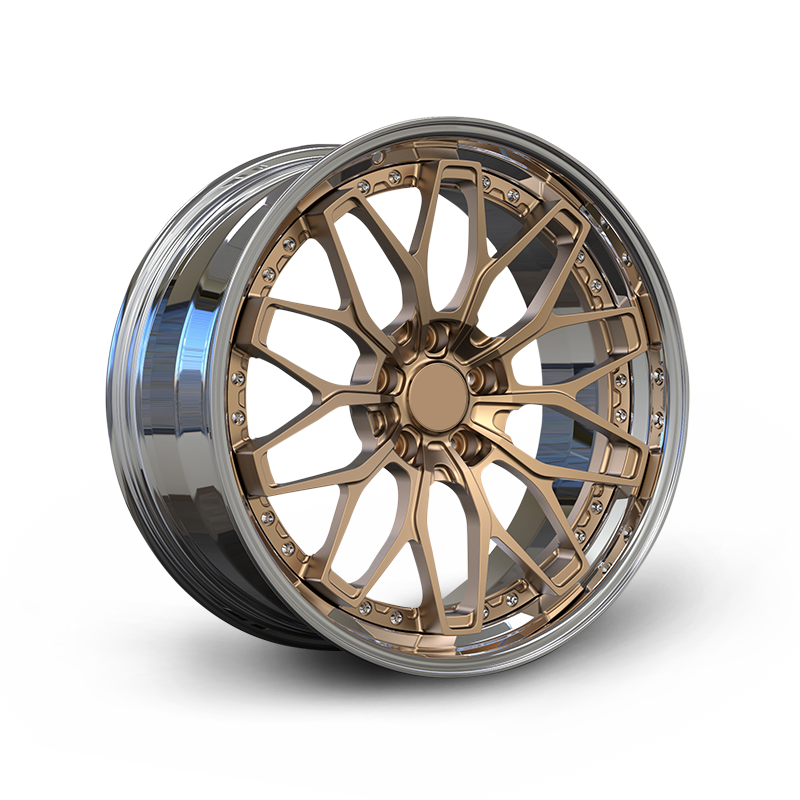Characteristics of Wheels Made of Aluminum Alloy
Aluminum alloy wheels, also known as aluminum alloy rims, are a popular choice for modern vehicles due to their numerous advantageous characteristics. These wheels are crafted from a blend of aluminum and other metals, which endows them with unique properties that make them suitable for a variety of applications.
Processing Performance
One of the standout characteristics of aluminum alloy rims is their outstanding processing performance. Aluminum alloys can be easily shaped and molded into complex and intricate designs, which provides significant flexibility in wheel design. Unlike steel wheels, which are more limited in their design capabilities, aluminum alloy wheels can be manufactured with detailed patterns and customized features. This ability to create complex shapes allows manufacturers to produce wheels that not only enhance the visual appeal of a vehicle but also meet specific performance requirements.
The processing performance of aluminum alloy wheels also extends to various surface treatments. For instance, aluminum alloy wheel polish is commonly used to achieve a high-gloss finish, enhancing the aesthetic appeal of the wheels. Additionally, painting aluminum alloy wheels offers a wide range of color options and designs, allowing for further customization and personalization. These treatments can significantly influence the overall look of the wheels, making them more attractive and tailored to individual preferences.
Cost-Effectiveness
While the initial cost of aluminum alloy wheels may be higher compared to traditional steel wheels, their long-term benefits often outweigh the initial investment. Aluminum alloy rims are lighter than steel wheels, which contributes to improved fuel economy and reduced wear on the vehicle's suspension system. The reduction in weight not only enhances vehicle performance but also lowers the fuel consumption, which can result in cost savings over time.
Furthermore, aluminum alloy wheels are highly durable and resistant to corrosion, which can cause reduced maintenance and replacement costs. Unlike steel wheels, which are prone to rust and deterioration over time, aluminum alloy rims maintain their integrity and appearance with minimal upkeep. This durability translates into fewer repairs and replacements, making aluminum alloy wheels a cost-effective choice in the long run. Despite the higher initial cost, the benefits of enhanced performance, reduced fuel consumption, and lower maintenance expenses make aluminum alloy wheels a wise investment.
Environmentally Friendly
The environmental benefits of aluminum alloy wheels are also significant. Aluminum is a recyclable material, and its use in automotive wheels helps to reduce the environmental impact associated with vehicle production and disposal. Recycled aluminum requires less energy to process compared to producing new aluminum, which contributes to a reduction in overall energy consumption and greenhouse gas emissions.
By choosing aluminum alloy rims, vehicle owners are contributing to more sustainable practices and reducing their carbon footprint. The recycling of aluminum not only conserves natural resources but also minimizes the waste that ends up in landfills. This makes aluminum alloy wheels an environmentally friendly option that aligns with broader efforts to promote sustainability and reduce the ecological impact of automotive manufacturing.
Shock Absorption Performance
Aluminum alloy wheels also offer outstanding shock absorption performance compared to steel wheels. The inherent properties of aluminum alloys provide better cushioning against road impacts and vibrations, which results in a more comfortable driving experience. This shock absorption capability is particularly beneficial for drivers who frequently navigate rough or uneven road surfaces.
The enhanced comfort provided by aluminum alloy rims contributes to reduced driver fatigue and a smoother ride. This is due to the ability of aluminum alloys to absorb and dissipate shocks more effectively, minimizing the transmission of vibrations to the vehicle's cabin. In contrast, steel wheels are less effective at absorbing shocks, which can cause a harsher ride and increased strain on the vehicle's suspension system.
Aluminum alloy wheels offer several advantageous characteristics that make them a preferred choice for many vehicles. Their outstanding processing performance allows for complex and customized designs, while their cost-effectiveness is demonstrated through improved fuel economy and reduced maintenance expenses. Whether through aluminum alloy wheel polish, painting aluminum alloy wheels, or simply choosing high-quality aluminum rims, these wheels provide a blend of performance, durability, and aesthetics that cater to a wide range of driving needs and preferences.
If you have any questions, please fill out the contact form at the bottom of the page and contact us.

